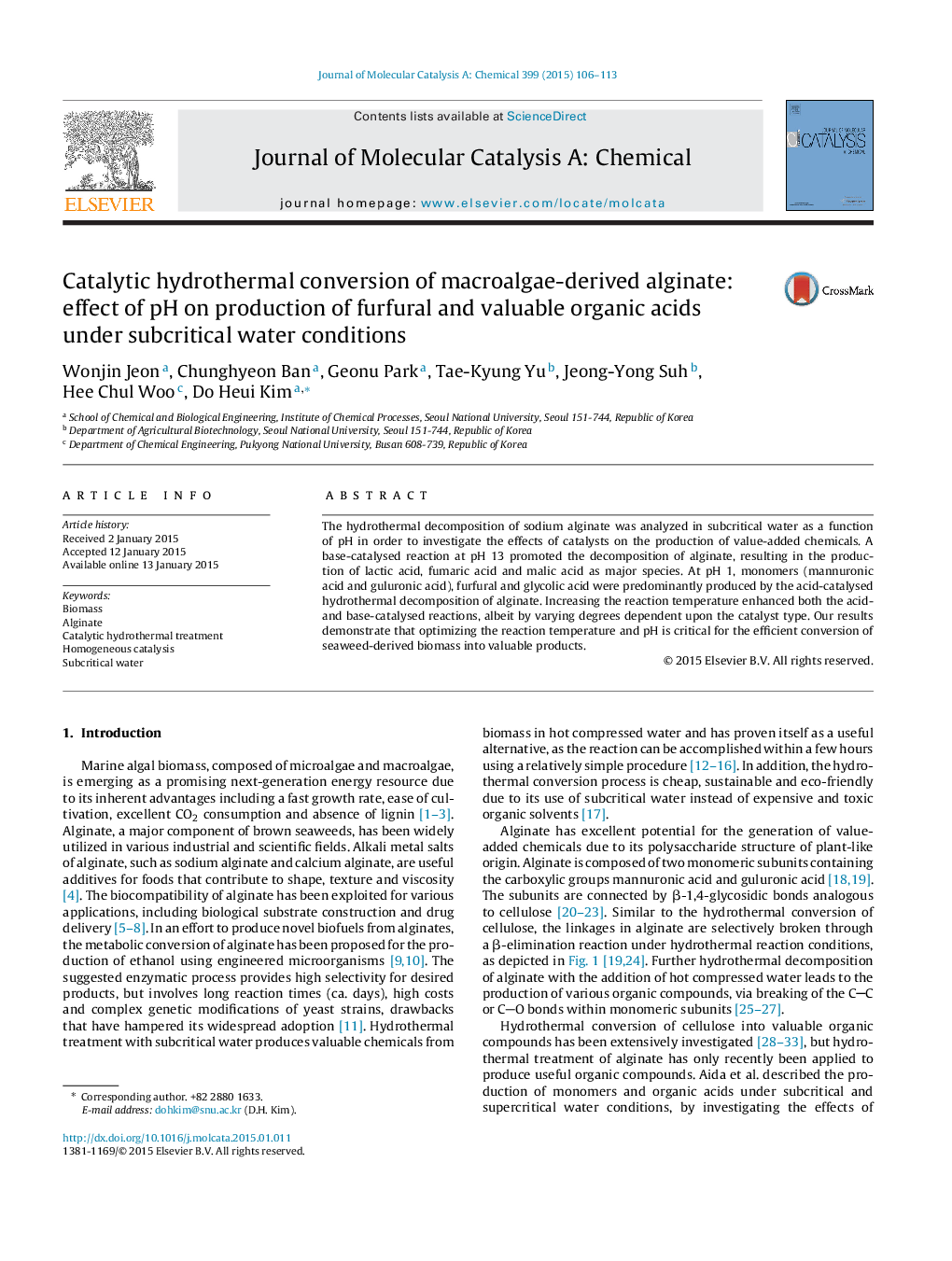| Article ID | Journal | Published Year | Pages | File Type |
|---|---|---|---|---|
| 65188 | Journal of Molecular Catalysis A: Chemical | 2015 | 8 Pages |
•Catalytic hydrothermal treatment of alginate was performed in subcritical water.•Both acid and base catalysts promoted the decomposition of alginate.•Furfural and glycolic acid were mainly produced by acid-catalysed reactions.•Lactic acid, fumaric acid and malic acid were obtained in base-catalysed reactions.
The hydrothermal decomposition of sodium alginate was analyzed in subcritical water as a function of pH in order to investigate the effects of catalysts on the production of value-added chemicals. A base-catalysed reaction at pH 13 promoted the decomposition of alginate, resulting in the production of lactic acid, fumaric acid and malic acid as major species. At pH 1, monomers (mannuronic acid and guluronic acid), furfural and glycolic acid were predominantly produced by the acid-catalysed hydrothermal decomposition of alginate. Increasing the reaction temperature enhanced both the acid- and base-catalysed reactions, albeit by varying degrees dependent upon the catalyst type. Our results demonstrate that optimizing the reaction temperature and pH is critical for the efficient conversion of seaweed-derived biomass into valuable products.
Graphical abstractFigure optionsDownload full-size imageDownload high-quality image (280 K)Download as PowerPoint slide
